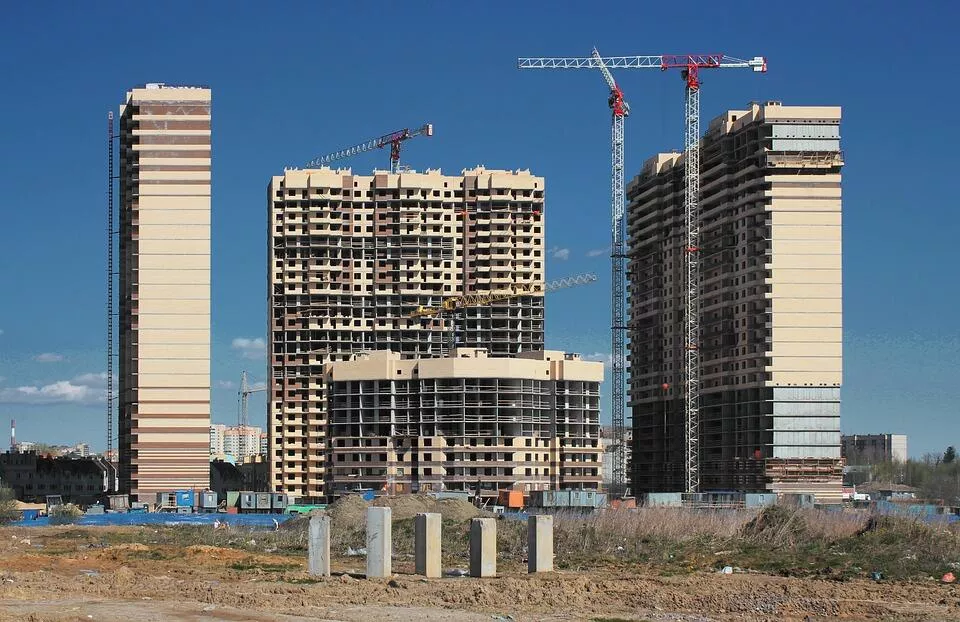An earthquake analysis report is a report that analyzes the earthquake resistance of a building or structure. This report can be used during the design and construction phases to determine and improve the resilience of the structure to earthquake effects.
The earthquake analysis report is prepared by structural engineers and other relevant experts. This report contains a series of conclusions and recommendations for the building or structure based on structural analysis, dynamic load calculations and possible earthquake scenarios.
This report can be used to determine and improve the resilience of the structure to earthquake effects. For example, by assessing factors such as the risk of collapse, the duration of shaking and vibration characteristics of the structure, the report can determine whether structural modifications need to be made where necessary.
As a result, an earthquake analysis report is a report that analyzes the earthquake resistance of a building or structure. This report provides important information about the earthquake risk and resilience of the structure and can help to make structural modifications where necessary.
How to get an earthquake analysis report?
You will usually need to contact a structural engineer to have an earthquake analysis report done. You can research or get recommendations to find a structural engineer for your business. The following steps are generally followed when making an earthquake analysis report:
First, it may be necessary to visit the building or structure to gather detailed information about its specifications and details.
Then, dynamic load calculations will be performed to analyze the behavior of the structure under earthquake effects. These calculations will provide important information about the earthquake resistance of the structure and its resistance to earthquake effects.
Using the results of the analysis, the structural engineer will prepare your report and make the necessary recommendations. The report will contain detailed information about the earthquake resistance of the structure, its possible weak points and the ability of the structure to cope with the earthquake.
Finally, the results of the report will determine whether structural changes need to be made. If necessary, the structural engineer will help make the structure more earthquake-resistant by suggesting the necessary changes.
Before commissioning an earthquake analysis report, it is useful to gather all relevant information, such as the characteristics of the structure and its documentation. In addition, as the building owner or manager, it is important to do the necessary work based on the results of the report and help make the building safer against earthquakes.
What should be considered when having an earthquake analysis?
Some important points to be considered when having an earthquake analysis are as follows:
Contact a licensed structural engineer: Consulting a licensed structural engineer to perform earthquake analysis will ensure that the structure is analyzed accurately.
Documentation of the technical characteristics of the structure: Accurate documentation of the technical specifications of the structure for earthquake analysis improves the accuracy of the analysis.
Location and soil characteristics of the structure: The location and soil characteristics of the structure play an important role in earthquake analysis. Therefore, the structural engineer should collect detailed information about the site and soil properties before performing the analysis.
Determination of earthquake scenarios: When performing earthquake analysis, it is necessary to determine possible earthquake scenarios and perform structural analysis according to these scenarios.
Interpretation of analysis results: The results of the analysis should be correctly interpreted by the structural engineer and the necessary work should be carried out based on the results of the report.
Structural modifications: If structural modifications are required according to the results of the earthquake analysis, making these modifications correctly will make the structure safer against earthquakes.
Periodic update: The condition of the structure and earthquake risk may change over time. Therefore, the earthquake analysis report of the structure should be updated periodically.
In conclusion, when performing earthquake analysis, attention should be paid to factors such as properly documented structural features, site and soil characteristics, possible earthquake scenarios and correct interpretation of the analysis results. In this way, the structure can be made more resistant to earthquakes.
What kind of companies should we work with for earthquake analysis?
It is important to make sure that the companies you will work with for earthquake analysis are managed by a team of licensed and experienced structural engineers. You should also pay attention to the following criteria:
References Examine similar projects and references of the company that will perform earthquake analysis.
License and competence: Make sure that the earthquake analysis firm is led by a licensed structural engineer. Also, make sure that the firm’s team members are licensed and experienced.
Up-to-date technology and methods: It is important to use up-to-date technologies and methods for earthquake analysis. This can improve the accuracy of the analysis.
Communication You need to establish good communication with the company that you will be in constant communication during the analysis. You can ask for your questions to be answered and for continuous information to be provided to you during the analysis.
Cost: You should also consider the costs of the company that will conduct earthquake analysis. However, for the accuracy of the analysis and your structural safety, it is recommended that you work with a company that provides quality service rather than low-cost companies.
The fact that the company you will work with for earthquake analysis complies with the above criteria will ensure that the analysis results are accurate and reliable. Therefore, it is important to be careful when choosing a company to work with.
Should we have an earthquake analysis and why?
Yes, an earthquake analysis is very important because it provides information about the structural safety of buildings at risk of earthquakes and helps you take the necessary measures to be prepared for future earthquakes. Furthermore, earthquake analysis identifies the current condition of the building and areas that potentially need structural strengthening, helping to make structural changes to ensure the longevity and safety of the building.
Earthquake analysis examines the durability and behavior of a building during an earthquake, and the results of this analysis are used to evaluate the performance of the building under earthquake action. Earthquake analysis helps you make design changes to save people’s lives and minimize material losses in case the building is damaged by an earthquake.
Earthquake analysis should be seen as an investment to increase the structural safety of a building and to be prepared for future earthquakes. It is also important to note that in many countries earthquake analysis is a legal requirement.



